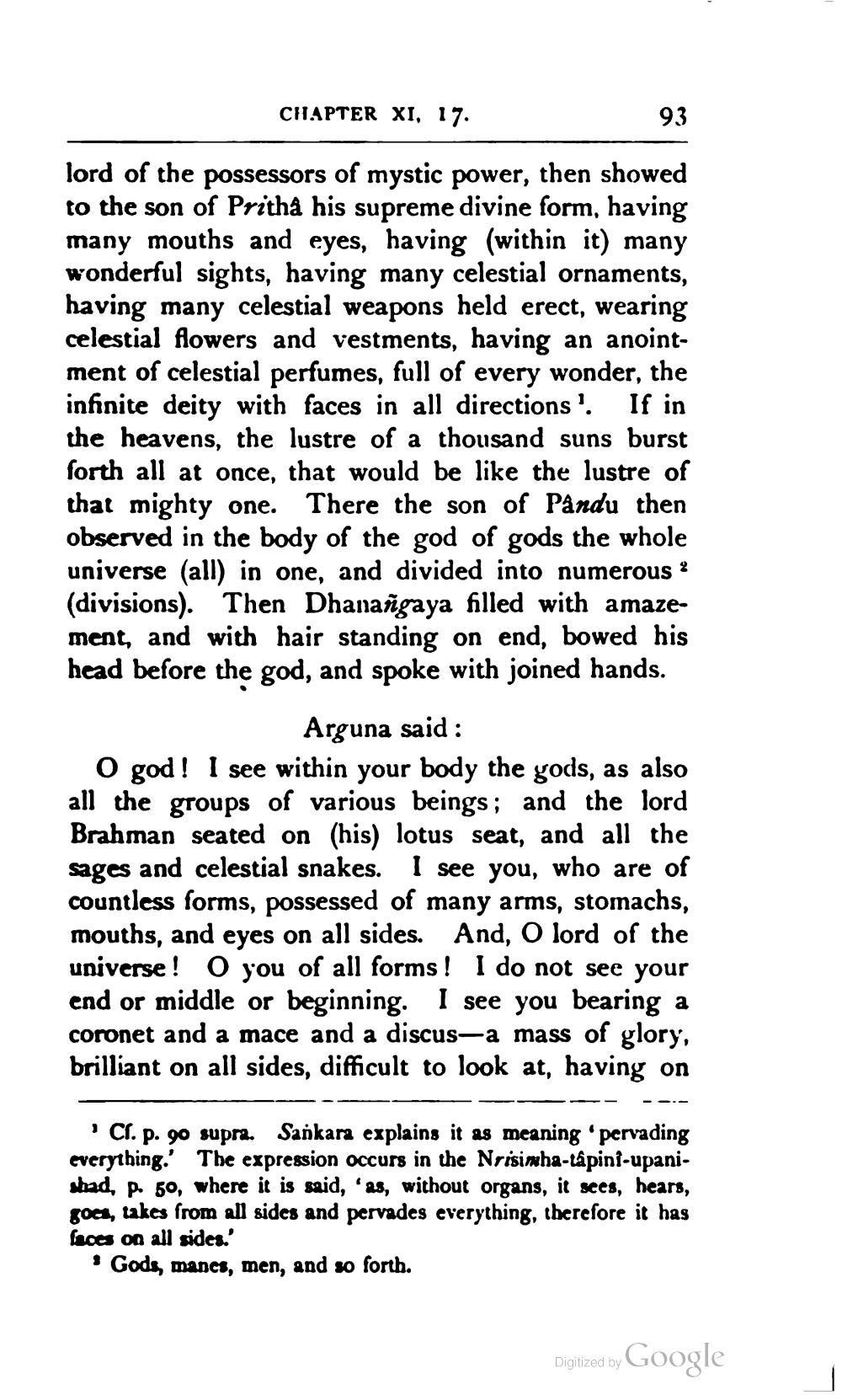________________
CHAPTER XI, 17.
93
lord of the possessors of mystic power, then showed to the son of Prithà his supreme divine form, having many mouths and eyes, having (within it) many wonderful sights, having many celestial ornaments, having many celestial weapons held erect, wearing celestial flowers and vestments, having an anointment of celestial perfumes, full of every wonder, the infinite deity with faces in all directions'. If in the heavens, the lustre of a thousand suns burst forth all at once, that would be like the lustre of that mighty one. There the son of Pandu then observed in the body of the god of gods the whole universe (all) in one, and divided into numerous ? (divisions). Then Dhanañgaya filled with amazement, and with hair standing on end, bowed his head before the god, and spoke with joined hands.
Arguna said: O god! I see within your body the gods, as also all the groups of various beings; and the lord Brahman seated on (his) lotus seat, and all the sages and celestial snakes. I see you, who are of countless forms, possessed of many arms, stomachs, mouths, and eyes on all sides. And, O lord of the universe! O you of all forms! I do not see your end or middle or beginning. I see you bearing a coronet and a mace and a discus-a mass of glory, brilliant on all sides, difficult to look at, having on
--- --- · Cl. p. 90 supra. Sankara explains it as meaning .pervading everything. The expression occurs in the Nrisimha-tâpini-upanishad, p. 50, where it is said, 'as, without organs, it sees, hears, goes, takes from all sides and pervades everything, therefore it has faces on all sides.'
• Gods, mancs, men, and so forth.
Digitized by Google




